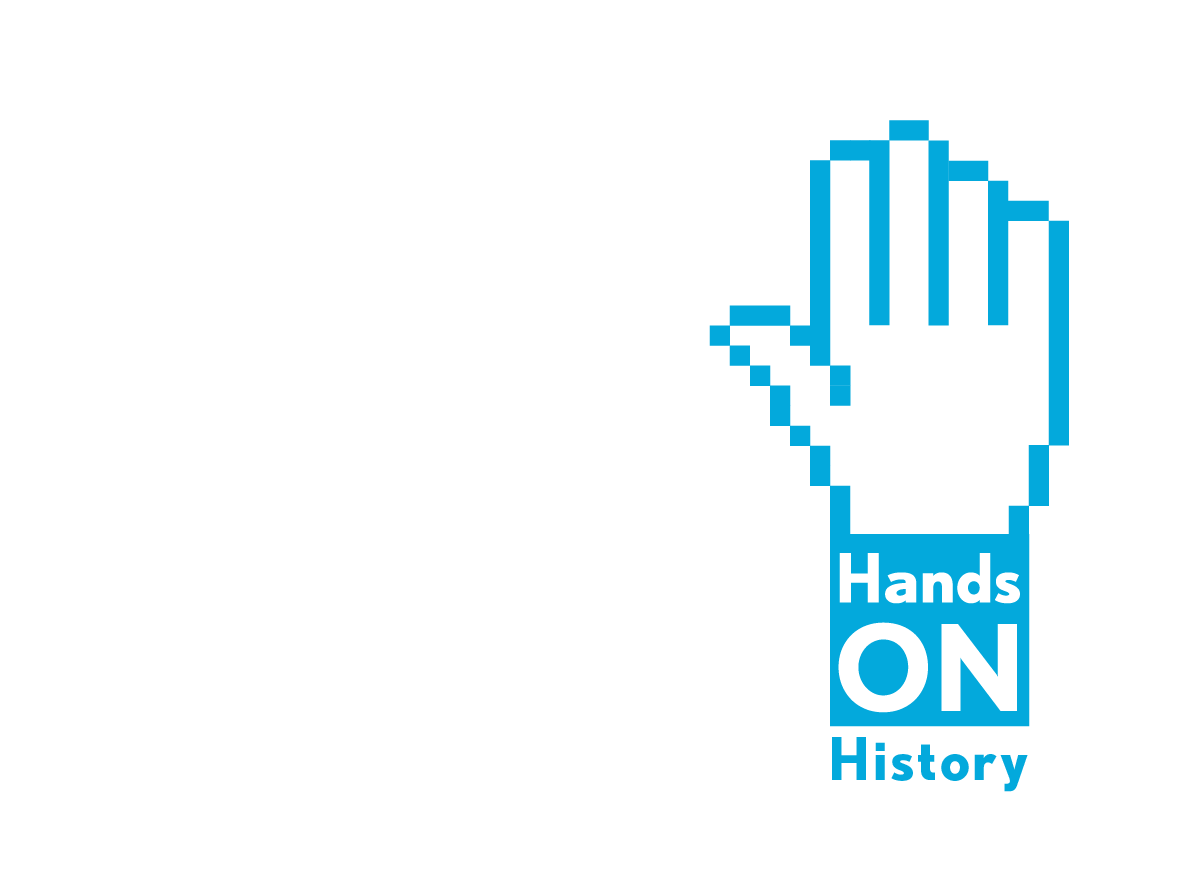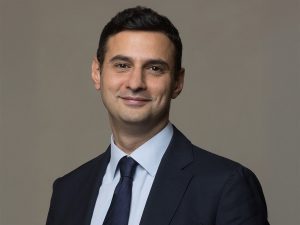Past lectures
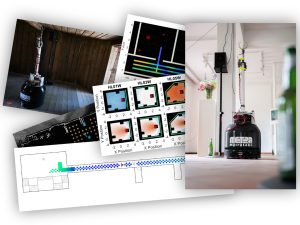 Wednesday 25 FebruaryFree of charge, Lectures and seminars, Virtual event
Wednesday 25 FebruaryFree of charge, Lectures and seminars, Virtual eventAutomated room acoustic measurements as a contribution to preserving cultural heritage as a digital twin
Learn more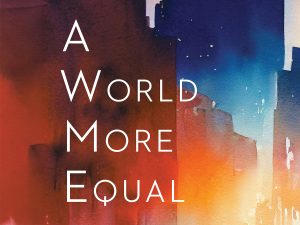 Wednesday 28 JanuaryLectures and seminars
Wednesday 28 JanuaryLectures and seminarsSeeing like an International Organization. An alternative history of the Cold War
Learn more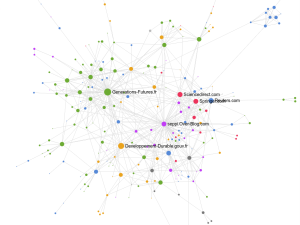 Wednesday 26 NovemberFree of charge, In-person event, Lectures and seminars, Virtual event
Wednesday 26 NovemberFree of charge, In-person event, Lectures and seminars, Virtual eventHyphe – A research-oriented web crawler
Learn more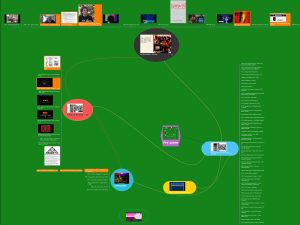 Wednesday 24 SeptemberFree of charge, In-person event, Lectures and seminars, Virtual event
Wednesday 24 SeptemberFree of charge, In-person event, Lectures and seminars, Virtual eventPrescene: Early Digital Cultures
Learn more
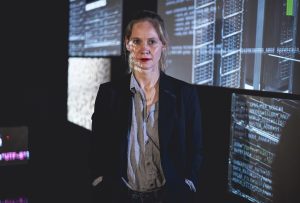 Wednesday 28 MayFree of charge, Lectures and seminars, Virtual event
Wednesday 28 MayFree of charge, Lectures and seminars, Virtual eventVanishing Points: Technographies of Data Loss – Tracing Digital Remains
Learn more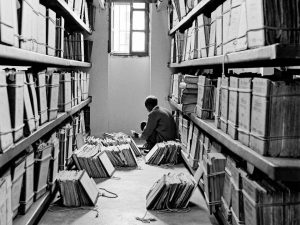 Wednesday 26 MarchFree of charge, In-person event, Lectures and seminars, Virtual event
Wednesday 26 MarchFree of charge, In-person event, Lectures and seminars, Virtual eventSo everything is biased … now what?!
Learn more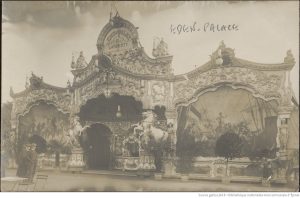 Wednesday 26 FebruaryFree of charge, In-person event, Lectures and seminars
Wednesday 26 FebruaryFree of charge, In-person event, Lectures and seminars(Re)searching Nineteenth-Century Fairground Ephemera: (Un)conventional Pathways
Learn more Wednesday 22 JanuaryFree of charge, In-person event, Lectures and seminars
Wednesday 22 JanuaryFree of charge, In-person event, Lectures and seminars(Digital) Prosopography & Biography – Entering the Black Box of IO Secretariats
Learn more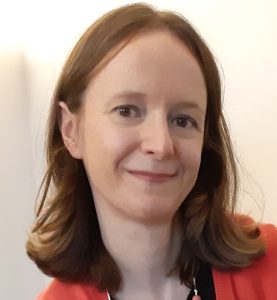 Wednesday 27 NovemberFree of charge, Lectures and seminars, Virtual event
Wednesday 27 NovemberFree of charge, Lectures and seminars, Virtual eventAI to Review Government Records: New Work to Unlock Historically Significant Digital Records
Learn more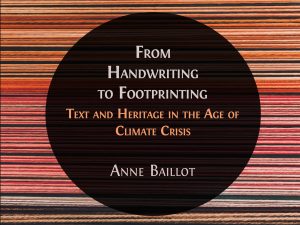 Wednesday 25 SeptemberFree of charge, Lectures and seminars, Virtual event
Wednesday 25 SeptemberFree of charge, Lectures and seminars, Virtual eventArchiving in times of climate crisis. Selecting, digitizing, analyzing for tomorrow
Learn more Wednesday 26 JuneFree of charge, Lectures and seminars, Virtual event
Wednesday 26 JuneFree of charge, Lectures and seminars, Virtual eventProbing the Limits of Visualization: From Holocaust Comics to Holocaust Memes and Beyond
Learn more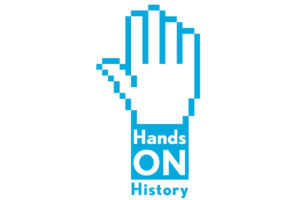 Wednesday 24 AprilConférences et séminaires, Événement en personne, Événement virtuel, Gratuit
Wednesday 24 AprilConférences et séminaires, Événement en personne, Événement virtuel, GratuitLe Luxembourg au cœur d’un réseau transnational : le cas de la presse anarchiste en italien publiée dans les aires francophones (1870-1950)
Learn more Wednesday 22 MayFree of charge, In-person event, Lectures and seminars, Virtual event
Wednesday 22 MayFree of charge, In-person event, Lectures and seminars, Virtual eventThe Dynamic Networks of 19th Century Newspaper Reprinting
Learn more Wednesday 28 FebruaryFree of charge, In-person event, Lectures and seminars, Virtual event
Wednesday 28 FebruaryFree of charge, In-person event, Lectures and seminars, Virtual eventThe map is not the territory – Perspectives on the Amazon Basin
Learn more Monday 08 JanuaryFree of charge, In-person event, Lectures and seminars
Monday 08 JanuaryFree of charge, In-person event, Lectures and seminarsThe biography of heritage relations in historical research
Learn more Tuesday 07 NovemberLectures and seminars
Tuesday 07 NovemberLectures and seminarsUsing Data Science Methods to Explore the History, and Future, of State Secrecy
Learn more Tuesday 07 NovemberLectures and seminars
Tuesday 07 NovemberLectures and seminarsUsing Data Science Methods to Explore the History, and Future, of State Secrecy
Learn more

-
Peter Haslinger
31 May 2023
Digital Humanities in Times of War: The Consequences of Russia’s Aggression against Ukraine
Prof. Dr. Peter Haslinger, Director of the Herder Institute for Historical Research on East Central Europe
As a result of the digital revolution and the new possibilities for communication and documentation, Russia’s war against Ukraine is already considered the best-documented war to date. How should this be assessed, however, from the perspective of digital humanities? What does this mean for the concept of digital source criticism in times of fragile facts? What form of digital agency can be observed and what does this mean for the status of classical historical research and curatorial activities taken care of by institutions? The presentation develops four hypotheses on the manifold implications of the current war for the future of digital history. It also addresses ethical challenges for research and asks how a decolonization of Russian/Soviet history and the demand for a recentering of Ukraine in the European understanding of history can be met in the field of digital humanities. -
Christian Wachter
29 March 2023
Form Follows Conception. Representing Non-Linear History through Multimodal Hypertext
Christian Wachter, Bielefeld University
How do historians shape conceptions of history? How do these conceptions structure narratives and argumentation? And how do historians represent these structures by the design of their publications?
Traditional text formats seem to favor the representation of linear progression: Text flows from beginning to end, mostly sequentially. Chapters and sections serve as means of hierarchization. This structure resembles the flow of time in history, on the one hand, and the logical ‘architecture’ of academic sense-making, on the other hand. However, complex conceptions of history like global entanglements, time layers, or spatial history resist the linear logic of the text. The same applies to data-driven research, when DH scholars present their interpretations, refer to data and visualizations, and discuss methodology. All these matters are too intricate to be expressed conveniently by linear progression.
There are only a few attempts by historians to respond to this challenge by crafting hypertextual publication formats. Here, information is interlinked in a non-linear way. While most hypertext research has advocated hypertext as a complex web with users freely navigating through its nodes and edges, pre-defined navigation pathways seem more promising. They guide users through complex yet coherent pieces of historiography. Users gain further orientation when this multi-linear design is visualized – for instance, as a graph. The resulting multimodal format offers unique possibilities to express complex narratives and argumentation in a way traditional text cannot.
Christian Wachter will discuss this matter mainly from a theoretical perspective, underpinning the potential of hypertext with references to semiotics, multimodality research, and epistemology. He will also discuss publication examples that lead the way and show, as Klaus Krippendorff states, “Design is making sense of things.
Christian Wachter is a postdoctoral research fellow of Digital History at Bielefeld University. His research and teaching focus on theory and methods of history, digital multimodal historiography, and digital techniques of historical research. After studying philosophy and history at the Universities of Hamburg and Goettingen, Christian Wachter received his PhD from the University of Goettingen in 2021 for his thesis on hypertext as a medium for digital historiography. In a current research project, he conducts digitally-assisted discourse analysis, examining political discourse in early twentieth-century Germany. -
Yannick Rochat
22 February 2023
Unravelling twentieth century Swiss video game heritage: an interdisciplinary research
Yannick Rochat, University of Lausanne
This conference will present current research on video game heritage in Switzerland, implying two research projects, Pixelvetica (2021-2022) and Confederatio Ludens (2023-2027). Pixelvetica provided a report on the current state of preservation in Switzerland, including guidelines aimed at politicians, heritage institutions, or game developers. We will present and discuss the conclusions from this report. Confederatio Ludens, a joint project of four universities (HKB, UNIBE, ZHdK, UNIL), will start in February 2023 and addresses a gap in the understanding of the Swiss video game industry and its cultural impact in the 20th Century. This project draws on existing research and will present and discuss the methodological challenges we are facing, for example in terms of oral history (many key actors are still alive), analysis of source code, and digital archiving. The talk will also introduce the field of game studies and its importance in understanding the broader cultural and societal context of video games.
Yannick Rochat is a professor assistant in game studies at the University of Lausanne, Switzerland (Department of Language and Information Sciences, Faculty of Arts). His research activities are dedicated to the study of video game and computer heritage in Switzerland as well as the use of video games for teaching. He borrows from digital humanities and mathematics for his research and teaching. -
Rebecca S. Wingo
25 January 2023
Archiving with the Apsáalooke
Rebecca S. Wingo, Director of Public History at the University of Cincinnati
In 1922, the U.S. Office of Indian Affairs ordered a photographic survey of every reservation in the West. The federal government planned to pass a law making all Native Americans citizens of the United States. The surveys would measure individual family’s readiness for citizenship. Among the Apsáalooke (Crow Nation), the Indian Agent surveyed 244 houses. While these surveys and photographs are instruments of surveillance, they also provide a unique snapshot into Crow daily life. However, the descendants of the families haven’t seen these photographs before. It is relatively easy to create a digital archive to rematriate the surveys. But is it possible to do something more? Can we reframe these images wrought of settler violence as family portraits?
Rebecca S. Wingo is a scholar of the Indigenous and American West and the Director of Public History at the University of Cincinnati. Broadly (and rather eclectically), she studied houses: homesteads in the West, houses replacing tipis on the Crow Reservation in Montana, and the use of eminent domain to displace Black citizens for highway construction in the 1950s and 1960s. How we define house and home is a reflection of American architectural determinism — the belief that the structure of the house can shape the behaviors of the residents within, or that houses can be weaponized to destroy unwanted communities or cultures.
In addition to several articles and digital projects, she co-wrote an award-winning book, Homesteading the Plains: Towards a New History (University of Nebraska Press, 2017). She was also the lead editor of an open-access volume called Digital Community Engagement: Partnering Communities with the Academy (University of Cincinnati Press, 2020) that uses case studies to explore the ethical challenges of academic-community partnerships. DiCE won the 2021 Book Award from the National Council on Public History.
Her in-progress manuscript, Framed: Housing, Photography, and Adult Education on the Crow Reservation, uses historic photographs to argue that the Office of Indian Affairs designed their housing policy to restructure the relationships the Crows had to the house, to the land, and to each other. -
Mia Ridge
21 December 2022
Crowdsourcing in Living with Machines: crowdsourcing for engagement meets data science research
Dr Mia Ridge, the British Library’s Digital Curator for Western Heritage Collections
Living with Machines is a large interdisciplinary research project that rethinks the impact of technology on the lives of ordinary people during the Industrial Revolution and Britain’s rapid transformation into an industrial society. The 19th century was a dynamic moment in the history of English, with vocabulary undergoing rapid changes.
Two different strands of work within the Living with Machines project collaborated to explore how language about machines changed over time. Each strand drew on different disciplinary models for research and practice. Voluntary crowdsourcing (also known as citizen science or citizen history, or crowdsourcing in cultural heritage) and computational linguistics are well-developed fields with established methods and epistemologies.
This talk reflects on how we devised work that was both valuable for crowdsourcing as a form of public engagement, and generated data useful for computational linguistics. How did we manage to reconcile values, align goals and methods to produce outcomes that met the needs of both disciplines, despite these constraints?
Dr Mia Ridge is the British Library’s Digital Curator for Western Heritage Collections. As part of the Library’s Digital Scholarship team, she helps enable innovative research based on the British Library’s digital collections, offering support, training and guidance on applying computational research methods to historical collections. Current projects involve crowdsourcing the transcription of historical playbills, and experimenting with machine learning-based methods with library collections. In January 2020 she was awarded funding by the Arts and Humanities Research Council for ‘Collective Wisdom’, a project that will capture the state of the art in crowdsourcing and digital participation in cultural heritage in 2020-21.
She is a Co-Investigator on the Living with Machines project, where she leads public engagement with digital scholarship and heritage collections through crowdsourcing. Living with Machines is a major inter-disciplinary historical and data science research project analysing digitised sources at scale to provide new insights into mechanisation in the industrial revolution.
She is a member of several project advisory boards in the fields of digital humanities and digital cultural heritage, and has undertaken peer review for a range of journals and conference programmes. Mia has supervised undergraduate and postgraduate research projects applying digital scholarship methods to the Library’s collections.
Mia has published, taught and presented widely on her key areas of interest including user experience design and human-computer interaction, open cultural data, digital history, and audience engagement and participation in the cultural heritage sector. Her edited volume, ‘Crowdsourcing our Cultural Heritage’ (Ashgate) was published in October 2014.
Her PhD in digital humanities (Department of History, Open University) was titled ‘Making digital history: The impact of digitality on public participation and scholarly practices in historical research’. -
Martin-Oleksandr Kisly
23 November 2022
Migration is not a one way trip. Studying and telling the story of Crimean Tatars’ deportation and return
Martin-Oleksandr Kisly (History Department of National University of Kyiv – Mohyla Academy)
The deportation of Crimean Tatars was a state-organized and forcible eviction of Crimean Tatars people that was ordered by Joseph Stalin as a form of collective punishment in 1944. It was supposed to completely remove the Crimean Tatar nationality from the demographic map of the world. It ruined the traditional way of life, social structure, and cultural institutes of Crimean Tatars. Indeed, Crimean Tatars were supposed to assimilate in exile. As a result of state-sponsored violence, Crimean Tatars became a nation in exile. After Stalin’s death they did not receive the right to return to Crimea and renew their autonomy, like most “punished peoples.” However, Crimean Tatars escaped the fate and managed to reshape their identity. Moreover, despite the ban, Crimean Tatars tried to return to their homeland during the Soviet era.
In the presentation the question “How did Crimean Tatars returnees dealt with ‘homecoming’?” will be answered. Studying the Crimean Tatars’ return contribute significantly not only to the history of Crimean Tatars, moreover, it is important for the understanding of reverse migration process in migration studies. The research, foremost, is based on oral history interviews. So the special attention will be paid to doing Oral History in Crimea.
A historian of Crimean Tatars, Martin-Oleksandr Kisly (History Department of National university of Kyiv-Mohyla academy) holds a Candidate of Science degree, having defended a dissertation entitled “Crimean Tatars’ Return to the Homeland in 1956–1989”. His research focuses on memory, trauma, identity and migration. Fulbright Research and Development program fellow (2017, University of Michigan, Ann Arbor). IWM fellow (2022). -
Paul Lesch, Yves Steichen, Manon Pinatel, Tessy Oppermann, Viviane Thill
26 October 2022
Accès aux archives du CNA : Démarches, questions, contacts
Paul Lesch, Yves Steichen, Manon Pinatel, Tessy Oppermann, Viviane Thill
Le Centre national de l’audiovisuel (CNA), créé en 1989 et situé à Dudelange, a pour vocation de conserver et valoriser le patrimoine audiovisuel du Luxembourg et de rendre accessible à tous et toutes la culture du son, de l’image fixe et de l’image animée à travers des expositions, des publications, des projections, des conférences ou d’autres manifestations. Les archives du CNA constituent par ailleurs une source historique et sociologique inestimable, susceptible d’intéresser les chercheuses et chercheurs du C²DH. Dans le présent séminaire, les responsables de l’accès aux archives du CNA mettront l’accent sur les démarches à suivre pour avoir accès à ces collections, et répondront aux questions des étudiant.e.s et membres du C²DH. -
Anna Baczkowska
28 September 2022
Polish immigration to Luxembourg – life, work and integration. Online discourse analysis of social media
Anna Baczkowska, visiting researcher at the C²DH
The presentation shows the results of Anna Bączkowska’s research conducted at the University in Luxembourg over the last three months. It focuses on the analysis of immigration discourse retrieved from social media created by Polish immigrants to Luxembourg. The analysis is based on the polska.lu forum which spans the last 15 years. The data were extracted both manually and automatically; thus, three subcorpora were created. The language used by forum interactants was investigated with the aid of corpus linguistics tools in order to notice some trends and tendencies in lexical choices of the forum users as well as the prevailing topics.
-
Andrew Russell
4 July 2022
Undisciplined Histories of Maintenance
Andrew Russell, Dean, College of Arts & Sciences, SUNY Polytechnic Institute
When Lee Vinsel and I started The Maintainers and wrote “The Innovation Delusion,” we brought our historical sensibilities to a project that we hoped would reach broader and more general audiences. In the process, we set aside some of the conventions of archive-based history and embraced approaches from different academic and non-academic fields. In this talk I’ll describe some of our choices, and how it led to some unexpected scholarly insights—and moments of joy.
Andrew Russell is a co-founder of The Maintainers with Lee Vinsel, in 2016. As a co-director, he works with Lee, Jessica, and Lauren on research projects, outreach, and a variety of organizational work that goes into maintaining the Maintainers. His background is in the history of technology, where he writes and teaches about subjects such as Internet history, technical standards, and technology in American life. He really enjoys seeing connections and patterns between maintenance in our personal lives and maintenance on broader scales, such as in organizations or state or national governments. -
Julia Ferloni
22 June 2022
“Barvalo”, un projet d’exposition collaborative au Mucem sur et avec les groupes romani
Julia Ferloni (conservatrice du patrimoine en charge du pôle de collection “Artisanat, commerce, industrie” au Mucem) et Gabi Jimenez (Artiste-auteur des arts visuels)
“Barvalo” ouvrira ses portes au Musée des Civilisations de l’Europe et de la Méditerranée le 10 mai 2023 à Marseille. L’exposition traitera de l’histoire des différents groupes romani (Roms, Gitans, Sinte, Manouches et Gens du Voyage) en Europe. Une histoire fortement teintée d’antitsiganisme. Conçue de manière collaborative par un groupe de 19 personnes d’origine romani et non romani, elle a permis au musée de mener en parallèle une réflexion sur ses collections en permettant de procéder à des acquisitions suggérées par le groupe ainsi qu’à une réindexation de ses fonds anciens.
En ne cédant pas à la tentation de la simplification et de l’homogénéisation pour parler des “Tsiganités”, le musée s’est ouvert également à la critique des musées d’ethnologie et de société en confiant à l’artiste Gabi Jimenez une installation au sein de l’exposition: le musée du Gadjo.
Julia Ferloni est conservatrice du patrimoine en charge du pôle de collection “Artisanat, commerce, industrie” au Mucem. Spécialiste de l’art et des sociétés de l’Océanie, elle a enseigné cette discipline à l’école du Louvre et a été commissaire de la section consacrée à l’Océanie du Muséum de Rouen en collaboration avec Te Papa Tongarewa, National Museum of New Zealand (2011). Elle est spécialisée dans les projets muséaux participatifs : exposition « Carte blanche à l’hôpital d’Oissel » (Muséum Rouen, 2010), enquête-collecte « Professions et savoir-faire romani en Europe et Méditerranée » (Mucem, 2019-2021), expositions « Patrimoine de la Méditerranée » et « Barvalo » (Mucem, 2023). Elle mène un doctorat sur ce dernier projet à l’Amsterdam School for Cultural Analysis (Université d’Amsterdam).
Gabi Jimenez est artiste-auteur des arts visuels. En 2007, il expose et représente la communauté Tsigane dans le « Premier Pavillon Tsigane/Rom » à la 52e Biennale de Venise d’art contemporain. En 2009, il présente ses installations et œuvres à la « Kitch Konvention und Kunst Art contemporain-rom » dans le segment « Europe – Exposition d’art contemporain », à Cologne, en Allemagne. En 2010, il expose en solo au « Premier séminaire International sur les Arts Romani » à Cáceres, Espagne. Il demeure actif dans l’activisme politique et de sa communauté : En 2010, quand les expulsions massives des Roms ont été menées par le gouvernement français à partir de plusieurs endroits à travers la France, Jiménez a le courage de communiquer avec les organisations internationales et de plaider pour les droits des Roms et des voyageurs. Il crée l’œuvre « L’apocalypse selon Saint Nicolas » triptyque dédiée à cet événement sans précédent. Il est à la fois un leader charismatique avec des compétences rhétoriques prodigieuses et un profond engagement, en poursuivant sa recherche de la vérité à travers de la peinture contemporaine. ». Timéa Junghaus.
En 2013, à la suite de son exposition personnelle à la DIHAL -Délégation interministérielle à l’hébergement et à l’accès au logement- à Paris, l’État français acquière deux de ses toiles représentant « Le Grand Paris ». Puis en 2014, Gabi Jimenez est nominé par le Ministère de la Culture d’Espagne et reçoit le prix « Peinture et Arts plastiques » pour l’ensemble de son œuvre militante et engagée. La même année, le Président de la Cour Européenne des Droits de l’Homme acquiert l’une de ses œuvres, désormais exposée dans la salle des juges. En 2016, l’œuvre « Caravane sous deux cyprès », déjà remarquée lors de la Biennale de Venise de 2007, est exposée à San Sebastian (Espagne), capitale européenne de l’art, lors de l’exposition « Tratado de Paz » sur la représentation de la paix, et parmi plus de 300 œuvres d’artistes tels que Goya, Rubens, Murillo, Picasso, Ribera, Sophie Ristelhueber… 2021, cinq œuvres de Jimenez entrent dans les Collections Nationales du MUCEM. Les toiles de Gabi Jimenez sont parcourues de couleurs vives et chantantes, de dessins aux traits cernés de noir, stylisant la culture des Gens du Voyage et des Tsiganes sans jamais la réduire à de simples clichés. Derrière le fourmillement de détails et de joie émanant de prime abord se cache pourtant une toute autre vérité : celle d’une histoire peu reluisante, faite de discrimination, de violence, de haine, et d’expulsions. Une histoire toujours d’actualité depuis les lendemains obscurs de la Seconde Guerre mondiale. -
Jane Winters
27 April 2022
Making connections: new ways of accessing cultural heritage online
Prof. Jane Winters, School of Advanced Study, University of London
This presentation will consider the limits of search for exploring digital cultural heritage and discuss some of the alternative modes of discovery that become possible through data linking and visualisation. It will draw on the experience of two projects: the Heritage Connector and the Congruence Engine. Both are concerned with unlocking the full potential of museum catalogues, which are largely unstructured, variable in consistency and overwhelmingly composed of what might be described as ‘thin’ records. The Heritage Connector project sought to build links at scale between the collections of the UK’s Science Museum Group, the Victoria and Albert Museum and Wikidata, and the Congruence Engine initiative expands this work to include data from more than 20 cultural heritage and university partners. New forms of visualisation and access are at the heart of these interdisciplinary collaborations. The presentation will conclude by considering how useful these methods might be for exploring vast born-digital collections, such as web and social media archives.
Jane Winters is Chair of Digital Humanities and Pro-Dean for Libraries at the School of Advanced Study, University of London. Her research interests include digital history, the archived web, big data for humanities research, new forms of scholarly communication, and open access publishing. She is a Fellow and Councillor of the Royal Historical Society. -
Mischa Gabowitsch
23 March 2022
Studying War Commemoration Amid War: Russia’s Invasion of Ukraine As a Tragedy for Historical Research
Dr Mischa Gabowitsch (Einstein Forum, Potsdam, Germany)
In this lecture Dr Mischa Gabowitsch will talk about his research in Ukrainian, Belarusian and Russian archives, and with colleagues from these and other countries, to study Soviet war memorials and WWII commemoration across present-day national boundaries. He will also discuss the different ways in which Russia’s invasion of Ukraine has made this work impossible by destroying human lives, but also archives and monuments, as well as prospects for future cooperation. Finally, he will report on, and suggest, ways to help Ukrainian colleagues and show them solidarity. -
Henrietta Lidchi
23 February 2022
Of colonial military objects, contest and sentiment
Dr. Henrietta Lidchi, Nationaal Museum van Wereldculturen, Leiden
What roles do the products of colonial conflict play in the culture of memory in military museums? Thinking through questions of materiality, memory and collecting, the lecture will consider especially those collections held in British military museums arising through colonial wars. The research that informs the lecture comes out of a multi-year research project, combining material anthropology and military history, that seeks to address in particular the material legacies in military museums, as distinct from those in national museums. In recent years the question of colonial collections has regained popular prominence, with a clear association of European collections of the non-European world with the phenomenon of looting, and thus within a wider debate about the legitimacy and legality of the taking and retention of such objects. This research addresses colonial military objects to understand how their retention influences what can be known about the acquisitive behaviours of those in colonial military service, and how these insights can assist as we discuss the contested presence of colonial objects in museums.
Henrietta Lidchi is Head of Research and Collections at Nationaal Museum van Wereldculturen, Leiden, the Netherlands. Her main research interests are Native American art and material culture, histories of collections and practices of museum display, as well as contemporary artistic practices and photography. More recently she has been concentrating on questions of colonial collections, especially those collected by the military. Publications include the “Poetics and Politics of Representing other Cultures” (1997); Imaging the Arctic (1998); Visual Currencies: Reflections on Native Photography (2009); Surviving Desires: Making and Selling Jewellery in the American Southwest (2015); Dividing the Spoils: Perspectives on military collecting and the British Empire (2020). She is Honorary Professor in the School of Social and Political Sciences at the University of Edinburgh, Research Fellow at Centre for Anthropological Research in Museums and Heritage, Humboldt University, Berlin. -
Hoyt Long
26 January 2022
On Not Knowing: Reasoning with Uncertainty in Digital Literary Studies
Hoyt Long, University of Chicago
The increasing ubiquity of machine learning algorithms in our everyday lives has prompted much critical debate over their ethical and epistemological implications. Much of this debate has focused on the kinds of social biases they encode and the need for humans to correct or intervene in their automated decisions. Humanistic disciplines naturally have much to offer these debates, with their long tradition of attending to the partiality of any claims to generalizable truth. But this critical stance can at times hinder recognition of machine learning as itself mired in a long history of debate over how to reason about error, bias, and the uncertainty of all knowledge. What might humanistic inquiry gain not by thinking around these ideas, as if they were problems belonging to the machine or a naïvely positivist worldview, but instead with them, as both historical and philosophical counterpoint to its own established theories?
In this talk I draw on several case studies from my research to reflect on the usefulness of reasoning with these ideas as they manifest in machine learning and statistical methods more generally. This includes projects related to the classification of poetic genres, recovering the semantics of racial bias in Japanese prose fiction, and analyzing large-scale bibliographic data on literary translations. In each case I suggest how a deliberate confrontation with statistical error, bias, and uncertainty can open up new sites of interpretation within literary study while also encouraging mutual recognition of the knowledge gaps that characterize qualitative and quantitative methods alike.
Dr. Hoyt Long is Associate Professor of Japanese Literature, and East Asian Languages and Civilizations at the University of Chicago. -
Christopher Green
18 November 2021
Producing & Interpreting Networks of Journal Articles in Psychology, 1887-1902
Prof. Dr. Christopher Green, professor of psychology at York University in Toronto, Ontario, Canada
My team has been collecting full runs of psychology journals from around the turn of the 20th century and, using statistical methods, converting them into networks not of people, as is the typical practice, but of the articles themselves. This leaves us with the question of how to interpret clusters of articles that are associated with each other by the vocabularies they contain. In this talk, I will ask you to participate in our interpretive process and help to name the clusters yourselves (then we can see how your labels line up with the ones that we came up with). The journal we will be using is the American Journal of Psychology, from its founding by Granville Stanley Hall in 1887 up to 1902.
Christopher Green works in the Historical, Theoretical, & Critical Studies of Psychology Program at York University in Toronto, Canada. He has PhDs in Cognitive Science and in the Philosophy of Science. For the past decade his lab has been conducting digital research on the history of psychology. His most recent book is Psychology and Its Cities: A New History of Early American Psychology (Routledge, 2019). -
Raphaëlle Branche
27 October 2021
L’accès aux archives publiques en France: retour sur les dernières évolutions
Prof. Raphaëlle Branche, professeure d’histoire contemporaine à l’Université de Paris Nanterre et membre de l’Institut des Sciences Sociales du Politique (CNRS)
Ces deux dernières années, un collectif regroupant archivistes, historien.nes et juristes se sont unis afin de contester la légalité d’un texte réglementaire portant sur la communication des documents classés secret défense de plus de 50 ans. Cette intervention sera l’occasion de revenir sur la situation des archives publiques en France et les péripéties de cette lutte. Cette mobilisation et les réactions du gouvernement ont abouti à une nouvelle situation qui n’est pas sans poser de nouveaux problèmes aux historien.nes comme aux citoyen.nes.
Raphaëlle Branche est professeure d’histoire contemporaine à l’Université de Paris Nanterre et membre de l’Institut des Sciences Sociales du Politique (CNRS). Elle est spécialiste des violences en situation coloniale, de la guerre d’Algérie et de ses mémoires. Son dernier ouvrage est « Papa, qu’as-tu fait en Algérie ? ». Enquête sur un silence familial (La Découverte, 2020). Elle préside aussi l’association des historiens contemporanéistes de l’enseignement supérieur et de la recherche (AHCESR) et a coordonné le collectif Accès aux archives publiques. -
Irmgard Zündorf
29 September 2021
Eichmann in the Cold War – a DVD film project
Irmgard Zündorf, Centre for Contemporary History Potsdam
The reporting on the trial of Adolf Eichmann in Jerusalem in 1961 is considered one of the first international media events. At the same time, the trial marked a turning point in society’s examination of the Holocaust and was very much in the spirit of the Cold War. The two German states also regularly reported on the trial in various media. These contemporary video clips, audio documents and newspaper articles were researched, compiled and commented on in a two-year project with students of Public History at the FU Berlin. The results are presented in the form of a DVD.
The lecture traces the project from the idea to the implementation as a student project and presents the result in the form of the DVD.
Irmgard Zündorf is a visiting research scientist at the Luxembourg Centre for Contemporary and Digital History (University of Luxembourg). She studied social and economic history at the Ruhr-University Bochum and obtained her PhD at the University of Potsdam (2004). From 1998 until 2001 she worked at the Museum of Contemporary History (Haus der Geschichte der Bundesrepublik Deutschland) in Bonn and from 2004 until 2006 at the Museum for Military History (Militärhistorisches Museum) in Dresden. In 2005/6 she assisted the expert-commission founded by the German government to consider the future of the GDR memory culture. Since 2008 she has been a research associate for university cooperative venture and knowledge transfer initiative at the Centre for Contemporary History Potsdam (ZZF). In this position she has been responsible for the cooperation between the ZZF and museums and memorial sites. In addition she coordinates the Master’s programme in Public History at the Freie Universitaet Berlin. She has been teaching since 2008 at the FU on topics of Public History – such as memory culture. -
Kasper Beelen
16 December 2020
Living with Machines: Digital Perspectives on the Industrial Revolution
Kasper Beelen (Alan Turing Institute, London)
In this talk Kaspar Beelen will present the “Living with Machines” project, a partnership between the Alan Turing Institute and the British Library, which investigates the impact of mechanisation on the lives of ordinary people. The project reappraises the history of the industrial revolution by interrogating large historical collections—such as newspapers, maps and census records—using data-driven methods. After giving an overview of the main research strands within the project, he will present recent work on historical newspapers, which critically investigates biases in these collections, and more broadly reflects on the role of source criticism for digital history.
Kaspar Beelen is a digital historian, who explores the application of machine learning to humanities research. After obtaining his PhD in History (2014) at the University of Antwerp he worked as postdoctoral fellow at the University of Toronto. As researcher on the Digging into Linked Parliamentary Data (Dilipad) project, he published several papers situated at the interface of data science, political science and history, which explored a wide range of topics, including: the representation of women in Westminster, the evolution of public health discourse, and the use of affect in parliamentary language.
In 2016, Kaspar moved to the University of Amsterdam where he first worked as a postdoc for the “Information and Language Processing Systems” group, and later became assistant professor in Digital Humanities (Media Studies). Since February 2019, he works at the Turing Institute as research associate for the Living with Machines project.
-
Theresa McCulla
16 June 2021
Collecting Craft Beer History at the Smithsonian
Theresa McCulla (Smithsonian Museum)
In recent decades, the brewing industry in the United States has enjoyed phenomenal growth. Thanks to the movement known as microbrewing, or “craft” brewing, the country now counts more than 8,700 breweries. In 2017, the Smithsonian Institution’s National Museum of American History launched the American Brewing History Initiative, a project to build a new collection of objects, documents, and oral histories related to homebrewing and craft beer in the U.S. This presentation will discuss the museum’s efforts to research, collect, and exhibit the stories and histories of beer. It will also share some of the collection’s highlights while exploring the opportunities and challenges involved in documenting a subject of the recent past and present.
Theresa McCulla, Ph.D., is Curator of the American Brewing History Initiative at the Smithsonian Institution’s National Museum of American History, where she is building a collection of objects, documents, and oral histories related to homebrewing and craft beer in the United States. Previously, she worked for Harvard University Library, Harvard University Dining Services, and the Central Intelligence Agency. McCulla earned a Ph.D. in American Studies and an M.A. in History from Harvard University, a Culinary Arts Diploma from the Cambridge School of Culinary Arts, and a B.A. in Romance Languages from Harvard College. Her writing has been published in Quaderni Storici, Gastronomica, The Washington Post, Smithsonian magazine, and other venues. She is writing a book about the history of food and race in New Orleans. -
Helle Strangaard Jansen
26 May 2021
‘Sesame Street’ and the transnational archive(s): digital, analogue, messy.
Helle Strangaard Jansen (Aarhus University)
In this presentation, I will talk about the work I have been doing for my new book about the transnational history of the American children’s television program Sesame Street. I will discuss how I collected the material I have used, how I selected it, and what the methodological implications are of using many different archives and digital repositories.
In the book, I draw upon materials collected from nine ‘analogue’ archives located in seven different countries (Italy, Germany, Denmark, Norway, Sweden, Britain and the United States). These archives are extremely different. They are all organized after different principles and what they contain of interest to me has varied from a few binders to hundreds of boxes. Some archives contain both published, unpublished as well as audio-visual material, others not. Some had huge restrictions on the use of their collections, others were completely open. But how to justify a comparison of such a varied material, and how to combine it into one narrative? These are pertinent questions, especially considering that I have also been able to draw upon a wide range of digital archives and repositories from the NYT’s TimesMachine to YouTube and the infamous Muppet Wiki. Taking a hands-on approach as the starting point, I will talk about the many practical and methodological challenges I have encountered when writing transnational history about a contemporary and (still) very popular media phenomenon.
Helle Strandgaard Jensen is Associate Professor of contemporary cultural history at Department of History and Classical Studies, Aarhus University, Denmark. She is also the co-director of the Center for Digital History Aarhus (CEDHAR). Her work focuses on media and childhood in Scandinavia, Western Europe and the US after 1945. She combines historical methods with theoretical approaches from cultural studies and media studies. One part of Jensen’s research has media as the historical object of study. The other looks at how digital media influence the discipline of history. She currently works on two projects. One is funded by the Danish Research Council and the European Commissions’ Marie Curie actions and focuses on the transnational history of the American children’s programme Sesame Street during the 1970s. A second micro-grant funded project uses digital methods to investigate the memory of Sesame Street on Twitter as an interplay shaped by users’ contributions and the platform’s technical design. -
Adam Crymble
28 April 2021
A Migrant’s Story: Digital Archives, the Other, and the Wokeward Shift
Adam Crymble (UCL)
Who do we digitize for? Who did we forget?
The age of mass digitisation of cultural heritage may well be behind us. From the 1990s to about 2010, billions of images, bits of paper, and even physical objects were transformed into a digital form and served up – often freely – on the web. The work was done by archivists, librarians, museum and gallery staff, historians, humanities scholars, and sometimes even enthusiasts. But these digitisers and the funders who supported them were not from a representative cross-section of humanity. They made well-intentioned choices during the selection and digitisation process. But whose interests have been served by those choices? And now that the money for large-scale digitisation projects is increasingly hard to come by, what does that mean for other voices?
Adam Crymble is a historian of migration and digital humanities scholar. His work considers the migrant experience and the ways that digital methods, archives, and twenty-first century culture shape the ways we can and do understand the lives of historical people on the move. -
Peter Crooks
31 March 2021
“A Malignant Destiny”: Recovering from Ireland’s National Archival Tragedy of 1922 through the ‘Beyond 2022’ Project
Peter Crooks (Trinity College Dublin)
June 30th, 2022, marks the centenary of the terrible explosion and fire at the Four Courts, Dublin, which destroyed the Public Record Office of Ireland (PROI) and, with it, seven centuries of Ireland’s collective memories. While incomparable with the loss of human life, the destruction of the Record Treasury at the PROI was one of the great tragedies of the Civil War.
Beyond 2022 is an all-island and international collaboration. Working together, we will launch a Virtual Record Treasury for Irish history—an open-access, virtual reconstruction of the Record Treasury destroyed in 1922.
Combining historical research, archival discovery and technical innovation, Beyond 2022 offers a lasting and meaningful legacy from the Decade of Centenaries, democratising access to invaluable records and illuminating seven centuries of Irish history. -
Anat Ben-David
24 February 2021
Towards critical web archive research
Dr. Anat Ben-David (The Open University of Israel)
This talk reviews recent work on web archives as objects of study, and as sources for historical research. Following the familiar distinction between software and hardware, I argue that web archives deserve to be treated as a third category – memoryware: specific forms of preservation techniques which involve both software and hardware, but also crawlers, bots, curators and users. While historically the term memoryware refers to the art of cementing together bits and pieces of sentimental objects to commemorate loved ones, understanding web archives as complex socio-technical memoryware moves beyond their perception as bits and pieces of the live Web. Instead, understanding web archives as memoryware hints at the premise of the Web’s exceptionalism in media and communication history, and calls for revisiting some of the concepts and best practices in web archiving and web archive research that have consolidated over the years. The talk therefore presents new challenges for web archive research, by turning a critical eye on web archiving itself, and on the specific types of histories that are constructed with web archives.
Dr. Anat Ben-David is a senior lecturer in the department of Sociology, Political Science and Communication. She is co-founder of the Open University’s Open Media and Information Lab (OMILab). Focusing on New Media, her primary research interests are history and geopolitics of the Web, Digital STS, social and political studies of social media, and digital and computational methods for Web research. -
Mark Tebeau
27 January 2021
Pandemic Digital Archives, Metadata, and Ethics in a Post-Truth Age
Mark Tebeau (Arizona State University)
A Journal of a Plague Year: An Archive of Covid-19 is a rapid-response digital archive of the pandemic, formed in March 2020. Operated by a curatorial collective representing more than 100 galleries, archives, libraries, museums, and universities in the United States (primarily) as well as globally, the archive collected more than 14K digital artifacts in 2020. The curatorial collaborative broadly shares authority, including researchers in Asia, Australia, the United Kingdom, Central America, Canada, and the United States.
In this talk, archive co-founder Mark Tebeau will explore a number of inter-related topics: the extensive metadata applied to digital objects in the archive, including using user-created metadata; the challenges of sharing authority in archival collecting, digital design, and user discovery; the particular challenges of pandemic collecting in the United States during 2020, with its multiple crises, including questions about the very nature of truth; ethical issues associated with pandemic collecting; and whether and how documenting a pandemic may be ushering in a completely new type of rapid-response archive. -
Vladan Joler
25 November 2020
New Extractivism
Vladan Joler (New Media department of the University of Novi Sad)
New Extractivism captures the contemporary forms of exploitation related to connectivity and networked infrastructures. It consists of a map and a manual followed by footnotes that depict and describe different concepts and allegories linking old to new forms of colonialism. The ideas, things and people presented together on the map and the manual are approached as an assemblage that express what extractivism today is and depends upon; they refer to the mining of data but also of natural resources, and to the labour of human but also of nonhuman agents, highlighting their interconnection. The work pays special attention to earth labour and geological processes that power the engines of new extactivism, and also presents the impact of the continuous data accumulation on the body of the planet. It discusses how the furthest corners of the biosphere are affected while new data economies are being born maximizing profit for a few.
Prof. Vladan Joler is an academic, researcher and artist whose work blends data investigations, counter cartography, investigative journalism, writing, data visualisation, critical design, and numerous other disciplines.
He explores and visualises different technical and social aspects of algorithmic transparency, digital labour exploitation, invisible infrastructures, and many other contemporary phenomena in the intersection between technology and society.
In 2018, in cooperation with Kate Crawford, he published Anatomy of an AI System, a large-scale map and long-form essay investigating the human labour, data, and planetary resources required to build and operate an Amazon Echo. His previous investigation Facebook Algorithmic Factory, included deep forensic investigations and visual mapping of the algorithmic processes and forms of exploitation behind the largest social network. Other investigations, he authored, published in recent years by the independent research collective, SHARE Lab included research on information warfare, metadata analysis, browsing history exploitation, surveillance, and internet architecture. He curated and organised numerous events and gatherings of internet activists, artists, and investigators including SHARE events in Belgrade and Beirut. His artistic pre-history is rooted in media activism and game hacking.
Vladan Joler’s work is included in the permanent collections of the Museum of Modern Art (MoMA) in New York City, the Victoria and Albert Museum in London and included in the permanent exhibition of Ars Electronica Center. His work is exhibited in more than a hundred international exhibitions, including institutions and events such as: ZKM, XXII Triennale di Milano, HKW, Vienna Biennale, V&A, Transmediale, Ars Electronica, Biennale WRO, Design Society Shenzhen, Hyundai Motorstudio Beijing, MONA, Glassroom, La Gaite Lyrique and institutions such as Council of Europe in Strasbourg and European Parliament in Brussels.
He has received numerous awards, including the 2019 Design of the Year award by the Design Museum in London and S+T+ARTS Prize ’19 Honorary mention by the European Commission and Ars Electronica.
Aside from his permanent professorship position at the Academy of Arts in Novi Sad where he teaches at the New Media department, he has given lectures at numerous educational and art institutions including University of Oxford, Museo Reina Sofía, CCCB, Royal Academy of Arts in Copenhagen, HfG-Karlsruhe, MG+MSUM, Aarhus University, Somerset House, Hangar Barcelona, Mucem Marseilles and numerous events such as Re:Publica, Transmediale, Ars Electronica, The Influencers, CCC, etc.
Joler’s work has been profiled and covered in many international media such as BBC, CNN, WIRED, The Independent, The Times, Wallpaper*, Le Figaro, The Verge, Fast Company, +ARCH, ArtForum, Neural, LesJours, WeMakeMoneyNotArt and many others.
-
Thomas Wallnig & Howard Hotson
17 June 2020
Reassembling the Republic of Letters in the Digital Age: On Infrastructure, Tools & Methods, and Collaborative Scholarship
Thomas Wallnig and Howard Hotson
Between 2014 and 2019, a community of over 200 academics from more than 30 countries joined a European research network called Reassembling the Republic of Letters. The purpose of the exercise was to assemble an interdiscplinary network to design a networking platform to support a scholarly network studying past intellectual networks. With this purpose in mind, scholars, librarians and developers worked together towards a pair of complementary goals. One goal was technical: to negotiate the basis for a distributed digital infrastructure for studying early modern intellectual correspondence. The other goal was scholarly: to experiment with the new forms of collaborative scholarship which could emerge on such infrastructure to generate a polyphonic, transnational intellectual history of the early modern world. Both aspects are documented in a collaboratively written volume, published in 2019, which also relates individual historical case studies to a wide range of traditional methodological frameworks, from social history to the history of ideas. The paper will introduce the audience to the details of the book and the project underlying it, and discuss recent developments both in the field of infrastructure and in that of scholarly methodology. -
Randy Widdis
26 February 2020
The Spatial Grammar of Borderlands
Randy Widdis (Professor emeritus at the University of Regina)
While the expansion of border and borderland studies into a broad interdisciplinary field has given rise to new combinations in approaches, there still exists uncertainty as to the role of theory in such research. Despite the fact that there is an obvious need for theorizing borders and borderlands, the variegated nature of borders with their own contextual features, power relations and unique histories make the development of a general theory virtually impossible (Paasi, 2011). In addition to the absence of a universal theory, distinctions between disciplines in terms of their epistemologies make it even more difficult for scholars to communicate and engage in meaningful dialogue and cooperative research. This presentation makes no attempt to develop either a general theory of borders or to devise a methodology that transcends disciplinary boundaries. However, it does outline an approach that offers a framework for studying the evolution of borderlands over time. An explanation of this approach is preceded by a brief discussion of some of my views on historical approaches to the study of borders and borderlands.
Randy Widdis is professor emeritus of geography and environmental studies at the University of Regina. He is the author of over seventy publications and is the recipient of forty awards and fellowships including the Albert B. Corey Prize for the best book on the history of North America (2006) and a Fulbright Fellowship (1994). He has published widely in the areas of rural development, heritage tourism and land settlement, but has more recently focused on the historical geography of the Canada-US borderlands. Dr. Widdis is just finishing his work as the lead for the historical theme and Great Plains/Prairies region components of the Borders in Globalization Project. -
Betto Van Waarden
4 September 2019
‘Anticelebrity’ and the Transnational Interactions between Politics and Mass Media
Betto Van Waarden, KU Leuven
‘The return of the strong man’ is a frequent topic in today’s media. Broadsheets decry people’s celebration of authoritarians like Putin, Erdogan and Trump, who cleverly style their virility. Even conventional leadership is thought to require charismatic celebrity as demonstrated by Obama, Blair and Schröder. Yet one of the world’s most powerful leaders is ‘Mutti Merkel’ – an ‘anticelebrity’. My objective during the C²DH Fellowship is to use this novel concept of anticelebrity to study the transnational interactions between politics and mass media in modern history, which would build on my doctoral expertise and provide a new direction towards a larger post-doctoral project.
-
Thorsten Logge
22 May 2019
History Types – Building block for a Theory of Public History?
Thorsten Logge, Universität Hamburg
Public history is still in the discovery phase in German-speaking Central Europe. In particular, well-founded theoretical approaches remain a desideratum for the development and establishment of a research-oriented public history as a recognized academic subject. The concept of „history types” is intended as a proposal for a systematic approach to analyze history in various media forms and formats. At the same time the concept offers the possibility to define passive and active history type competences as goals of public history curricula, study programs or modules – and to opening up a fundamental discussion about what academic and non-academic historiography is and should be in the 21st century.
Thorsten Logge is an assistant professor for Public History at the University of Hamburg. He studied History, Psychology and Political Science at the Universities of Hamburg and Gießen. As a doctoral candidate at the University of Gießen, Logge received a full scholarship of the German Research Foundation (DFG) and was both a fellow of the graduate school “Transnational Media Events from Early Modern Times to the Present” and the “Graduate Centre for the Study of Culture” (GCSC). His German dissertation „On the medial construction of the nation. The Schiller centenary 1859 in Europe and North America“ has been published 2014. From 2010 to 2017 he worked as a research assistant and coordinator of Public History at the University of Hamburg. His recent research project examines the production, representation, distribution and perception of history in public spheres on the example of the Battle of Gettysburg cycloramas from the 1880s to the mid 2000s. -
Gilles Zeimet
24 April 2019
The MNHA at your fingertips. Challenges and possibilities of a museum’s 3D model
Gilles Zeimet, National Museum of History and Art (MNHA)
In 2018, the MNHA decided to create a 3D model of its building. Aware of the complexity of its exhibition spaces the museum wants to provide a tool that allows for a better comprehension of its architecture that goes beyond the possibilities of simple images. Visitors are encouraged to discover the museum through an immersive experience. The presentation will focus on the underlying technology, its advantages as well as its limits. Attention will also be given to the opportunities the 3D tool presents in the context of the online publication of the MNHA’s collections.
Gilles Zeimet holds a master of history and history of art from the University of Aberdeen in Scotland. After working for Casino Luxembourg – Forum d’art contemporain and the Information and Press Service of the Luxembourg Government, he joined the fine arts department of the National Museum of History and Art (MNHA) in 2009. In 2018, he was appointed to the post of digital curator at the MNHA. He currently is responsible for the museum’s collection management system, its online collection platform as well as a number of long-term digitisation projects. -
Sandra Gaudenzi
20 March 2019
Why use interactive digital storytelling in academia?
Sandra Gaudenzi (University of Westminster, University College of London)
If the 21st century has to adapt to digital communication, academia still needs to learn to use digital storytelling to its full potential.
In the last 15 years the Web has radically changed the way scholars do research, write and teach. But very little has been done to use interactive storytelling as an instrument of thought and methodological mapping in academia. Even when televisions and newspapers have produced successful examples of interactive storytelling in the form of web-documentaries, educational games or fact data-visualisations, scholars find it difficult to step out of the standard divulgation forms of public presentations and academic writing. Why is so? Is it because of the technical challenges of digital media production or just for lack of practice and training?
This talk will not touch the vast domain of e-learning, but rather explore the idea of “digital interactive storytelling as a tool for thought”. Following the evolution of storytelling from linear to interactive, we will question if interactive storytelling could help scholars think in terms of polyphony of voices and non-causality. Using existing examples of history based interactive projects, we will question how the hypertext, the interactive documentary, Virtual Reality and Augmented Reality, can help us understand, and communicate, history differently. This talk will use case studies from the BBC, Arte Television, The Shoah Foundation and The Guardian to engage into an open discussion on how the interactive media could be helpful for the communication of complexity. It will also give practical advise on how to engage with this exciting new way of sharing stories and suggest that involving the audience is a way to “make sense together”.
Sandra Gaudenzi is a world expert in interactive narratives. Coming from TV production, she has been consulting, mentoring, researching, lecturing, writing, speaking and blogging about interactive factual narratives for the last twenty years. She is Senior Lecturer at the University of Westminster in the new Digital and Interactive Storytelling LAB – a place to explore, experiment and excel in the storytelling forms of our digital culture – and at UCL (University College of London). She is a Visiting Fellow at the Digital Cultures Research Centre (UWE, UK) where she co-directs the i-Docsconference and website, and with whom she co-edited her recent book “i-docs: the Evolving Practices of Interactive Documentary”. She is also Head of Studies of !F Lab (Interactive Factual Lab) – a Creative Europe training scheme for interactive documentary makers, where people can incubate and prototype their interactive projects. -
Melvin Wevers
27 February 2019
Building a historical cookbook from digitized newspapers
Melvin Wevers (KNAW Humanities Cluster, Amsterdam)
In this hands-on session, Melvin Wevers will show how he extracted a particular type of articles, namely recipes, from digitized newspapers. Using machine learning and an existing collection of annotated modern recipes, he managed to extract over 27 thousand recipes from four newspapers between 1950 and 1990. Also, he will showcase how nutritional information can be extracted from these recipes and how they can be automatically classified using tags.
Melvin Wevers is a postdoc in the DHLab at the KNAW Humanities Cluster in Amsterdam. His research interests include the study of cultural-historical phenomena using computational means with a specific interest in the formation and evolution of ideas and concepts in public discourse. In addition, he really likes to study advertisements and consumer products. Melvin has a background in American Studies, Psychology, and Cultural Analysis. -
Daphné Budasz, Romain Duplan & Iris Pupella
23 January 2019
Secousse festival: a laboratory for public history
Daphné Budasz, Romain Duplan & Iris Pupella (La Boîte à Histoire)
The Boîte à Histoire is a public history association created in 2017 by graduates in public history in Paris. Its first main project was a festival “Secousse” dealing with the revolutions that occurred in 1848. This three days event that took place in Paris in September 2018 had been thought as a meeting space between professional historians and various publics throughout different types of workshops and participative activities. The originality of the project lied in the variety of the activities the festival proposed as well as in the close collaboration of professional historians along with the integration of artistic disciplines and literature.
This session will discuss the way La Boîte à Histoire seeks for creating performative mediation forms that could serve critical discourses while giving a playful dimension to didactical public history practices. Despite the general success of the festival, the question of the public reception is also worth posing. Moreover, the limits meet by certain formats would be discussed with the view to the second edition that will be held in 2019.
Daphné Budasz is one of the founders of the French public history organisation La Boîte à Histoire. She holds a master degree in history from Queen Mary University in London and a master degree in Public History from the Université de Paris Est-Créteil. She is currently a PhD student at the European University Institute and her research focus on sexuality and gender in the British colonial empire in the late nineteenth century.
Born in South of France, Romain Duplan used to organise historical reenactment events before he completed a master degree in ancient history at Sorbonne University in Paris. In 2017, he founded the Public History association La Boîte à Histoire with Iris Pupella-Nogues and Daphné Budasz during their Public History master degree. In 2018, he became a research fellow at the National Museum of Immigration History in Paris.
Iris Pupella-Noguès is a French-Italian researcher and archivist for the French TV channel TF1. She has a master degree in Italian Contemporary History from Università degli Studi di Roma Tre in Rome and a master degree in Public History from the University de Paris-Est Créteil. It is during this second master degree that she founded with Daphné Budasz and Romain Duplan the Public History association La Boîte à Histoire. -
John Ellis
28 November 2018
Researching the history of television production technology
John Ellis, Royal Holloway London University -
Eva Schöck-Quinteros
24 October 2018
Aus den Akten auf die Bühne
Eva Schöck-Quinteros, Universität Bremen -
Sean Takats
26 September 2018
How to build a research tool for historians? Tropy as a case study
Sean Takats, Roy Rosenzweig Center for History and New Media
-
Kristen Haring
4 July 2018
Hands-on Historical Investigations
Kristen Haring (Stanford University) -
Karin Bienek & Ludwig Vogl-Bienek
25 May 2018
The Historical Art of Projection. Digital and experimental approaches to the archaeology of the screen
Karin Bienek and Ludwig Vogl-Bienek (University of Trier)
The term ‘historical art of projection’ denotes magic lantern shows and lantern lectures which were most widespread and with the greatest audience in industrialized countries of Europe and Northern America in the 19th century. The term ‘art of projection’ focuses on the composition and staging of magic lantern shows and lectures. The complex arrangement or ‘dispositif’ of the art of projection unites technical and design expertise, highly developed slide projectors, a large variety of slide sets of various genres, appropriate venues (e.g., theatres, churches or public halls), and audiences familiar with live performances by lecturers, musicians, and operators linked with projected images and visual effects on the screen. The art of projection is a visual medium of its time as well as one of the performing arts.
Our paper presents research methods and tools for digitalisations of works in the historical art of projection which are being developed in a DFG funded research project conducted in collaboration between the research focus Screen1900 at the Department of Media Studies at the University of Trier and the Trier Center for Digital Humanities: The Fundamentals of Digitalisation of Works in the Historical Art of Projection as Applied to Media History, Methodology and Media Technology. It illuminates approaches and procedures to digitise and digitally ‘reconstruct’ magic lantern slides and magic lantern performances and discusses the methodological challenges but also the benefits of using digital technology for re-activating historical practices of performative history.
The second section of the presentation introduces the experimental approaches of the illuminago project that combines media-archaeology and live performance. The illuminago ensemble has presented magic lantern performances since 1986. Their experimental re-enactments and creative re-uses of magic lanterns and slides involve musicians, actors and other performers. To demonstrate the dispositif of these shows we are going to use a bi-unial magic lantern to project original glass slides from the late 19th century onto a screen.
Afterwards the participants are invited to a hands-on session in the dh-lab with historical toy lanterns and original glass slides.
Karin Bienek is a magic lantern performer, serpentine dancer and experimental media-archaeologist. She received her diploma in pedagogy from Goethe University Frankfurt in 1983. Her thesis examined reception and learning processes in theatre. In the early 1980s she was a member of the independent theatre company Schlicksupp teatertrupp. From 1986 to 2005 she organised workshops, magic lantern shows and performance tours with international artists as well as two magic lantern festivals for the Deutsches Filmmuseum Frankfurt and the Institut für historische Projektionskunst. Currently she is a board member of laProf, the state association for professional independent performing arts in Hessen, Germany. Karin is a founding member of illuminago and its administrator and archivist.
Ludwig M. Vogl-Bienek is Senior Researcher in the Screen1900 research project “The Fundamentals of Digitalisation of Works in the Historical Art of Projection”. In two previous Screen1900 research projects, from 2005 onwards, he explored the uses of the screen in charity and social care. He initiated the international conference Screen Culture and the Social Question which took place at the German Historical Institute London (GHIL), in December 2011. He published widely on the art of projection in the 19th century, including his dissertation Lichtspiele im Schatten der Armut (2016). With Martin Loiperdinger, he co-curated the dvd Screening the Poor 1888-1914 (2011). Ludwig is an experienced lanternist and lantern showman. He is a founding member of the illuminago project that performs magic lantern shows internationally (Europe, the US and Canada). With the illuminago ensemble he has produced and performed media archaeological live performances and workshops since 1986. His digital lantern lectures link his scholarly research with his artistic approaches to the history of the art of projection. -
Grégory Corman & Jeremy Hamers
28 March 2018
Réagir à l’archive. Sartre et la radio
Une conférence/projection sonore de Grégory Cormann et Jeremy Hamers (Université de Liège).
Les études consacrées aux interventions de Sartre dans les médias dressent le portrait d’un philosophe frileux à l’égard de la radio, un médium réputé « à sens unique » conformément aux commentaires qu’il en aurait livré dans sa « Critique de la raison dialectique ». Il n’est pas étonnant dès lors que ces études se satisfont d’une approche essentiellement textuelle de ces interventions et manquent ainsi les usages singuliers que Sartre a fait de ses passages en radio. Partant d’extraits d’interventions enregistrées entre 1946 et 1973, la conférence et projection sonore « Réagir à l’archive. Sartre et la radio » entend contester l’image d’un philosophe rétif au médium radiophonique tout en dépassant la réduction de ses interventions sonores à leur seule retranscription textuelle. Le rythme des réponses du penseur, leur longueur, le jeu avec l’interviewer dont elles portent les traces, mais aussi les multiples références au direct de l’entretien radiophonique et à la réalité du moment de la diffusion témoignent en effet d’un usage extrêmement lucide d’un médium dont Sartre a tenté d’exploiter toutes les potentialités intellectuelles et politiques propres. On découvrira ainsi qu’avant d’être un matériau d’archive effacé par le texte, les interventions radiodiffusées du philosophe ont été autant de tentatives de (se) jouer de la spécificité radiophonique pour inscrire la pensée critique au cœur même du dispositif médiatique. -
Étienne Deschamps
28 February 2018
Mettre l’histoire de l’Europe en musée ? Expériences tirées de la Maison de l’histoire européenne
Étienne Deschamps (Archives historiques du Parlement européen) -
Helmut Walser Smith
20 December 2017
Finding the German nation before, during and after nationalism
Lecture by Helmut Walser Smith, Vanderbilt University, Nashville -
Michael Frisch
6 December 2017
PixStori and the challenges in the field of digital and public history
Lecture by Prof. Michael Frisch, Talking Pictures LLC, New York
